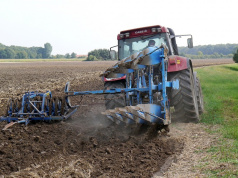A combination of biological and societal variables determines participation in criminal behavior. An individual’s educational experiences are a significant factor in determining their lifestyle. This includes the individual’s involvement in illegal activities. Over the years, schools have emerged as an essential factor in the socialization of children. There are various reasons behind the growing significance of formal education in the lives of young people. Exposure sure has its advantages and disadvantages, especially for young people.
Though the connection between education and crimes may be obvious, there are diverse angles to investigate nature and nurture. Many researchers have approached this subject from various angles in their studies. As a result, you will find it easy to locate an essay on these topics. There are several nature vs nurture essay ideas and examples you can access to learn more about these. Hence, correlations between education and criminal behavior have been shown in research samples. In this article, you will further discover education’s impact on crimes.
The Influence of Education on Criminal Activity
It’s not uncommon for students to write an essay that deals with nature and nurture. Since there is a connection between education and crime, it is vital to make a template for understanding both topics. It is clear that education affects criminal behavior. Researchers agree that getting an education after high school is an excellent way to avoid trouble. Even though this is a controversial topic, different groups feel the same way. A considerable amount of real-world study has looked into the link between education level and crime rates.
Researchers have shown that crime is linked to how well people do in school and how much effort they put into learning. These include bad behavior in teens, sometimes ending in being locked up. This is because there are many ways in which schools can affect the change from childhood to adulthood. Sometimes, teachers are part of the problem. They do this by treating students based on what they already think about how brilliant the students are. Because of this, they give fewer educational options to kids they think are not as bright.
Students who deal with these labels and restricted options feel they need to belong. This makes them want to hang out with people who aren’t good and do illegal things. This is the relation between education and crimes in society. So, you can say that a rise in criminal behavior is not caused by intelligence alone. But more by how people respond to their intelligence.
Most people believe that education is essential in reducing an individual’s likelihood of engaging in illegal activities. However, some people are more likely to engage in criminal behavior due to their enhanced capabilities and knowledge. Some examples of this behavior include computer fraud and schemes.
Intricate Interplay between Individual Predisposition and Environmental Factors on Education and Crime
People that commit crimes are typically self-absorbed, antagonistic, and cling to unusual ideals and ideas. There are diverse examples of the traits they showcase. They struggle to maintain control over their desires. Compared to people who have never been convicted of a crime, those who have done so are less sociable. They tend to be more aggressive and more sensation-seeking. Also, they tend to score higher on the neuroticism and psychoticism dimensions.
No matter a person’s gender, age, or geographical area, some personality traits can predict their engagement in crimes. Thus, beyond education, individual predisposition is a significant factor. If they probably grew up in a tough home or environment, there’s a possibility they grow tough skin. Thereby, there’s a likelihood of developing a defense mechanism because of their environment. Over time, this disposition can grow deep and push them to engage in crimes.
Conclusion
Researchers have spent years trying to get to the bottom of what makes people turn to crime in the first place. Individuals can decide to do something illegal because they have learned it from others and their environment. A broad view of the relationship between education and crime examines how criminal behavior affects educational institutions. In conclusion, a person’s level of schooling and personality affect their likelihood of doing something bad.










